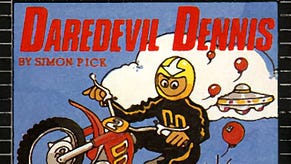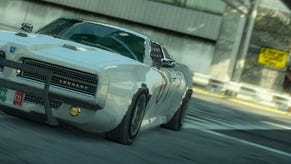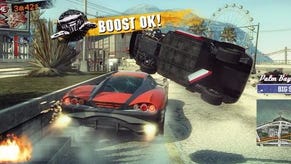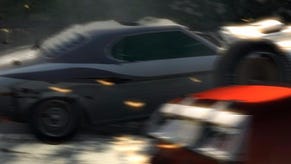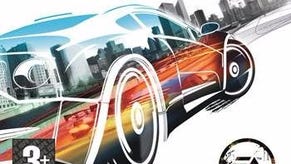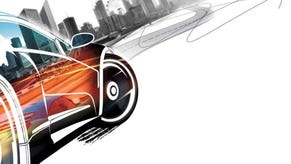Burnout Paradise
Half as nice?
Approaching the first blockbuster release of the year fully expecting to be mildly irritated by it can't be the best mindset. The spittle-flecked Internet response to the demo even prompted Criterion's Alex Ward to deliver a characteristically uncompromising Christmas message, in which he urged the public to, "Try [Burnout Paradise] for yourself and make up your own mind. Don't let the Internet do it for you."
The problem with Ward's terse response to public criticism is that it puts a whole number of the game's contentious changes at the forefront of your mind before you even play it. You do want to try it for yourself to make your own mind up, but also to find out if the naysayers were right all along. For such a hotly anticipated update to a much-loved series, there's been a curious cloud of negativity hovering over it.
If you've managed to avoid the noise, good for you - it's probably for the best. The good news is, when you actually get to play the full game (as opposed to the confusing demo), some of Criterion's choices start to make a lot more sense. Some. After a while, you might even empathise with Ward.
Like many of you, the demo made me want to throw things. The bad news is that the full game starts in exactly the same way, with one of the least helpful introductions to a racing game I've ever come across. I don't know about you, but I like structure. I don't mind being seamlessly shepherded along for the first few minutes so I can get my bearings. But, by design, Burnout Paradise basically dumps you in the middle of 250 miles of open road, tells you to start your engine and lets you get on with it.
Superstar DJ
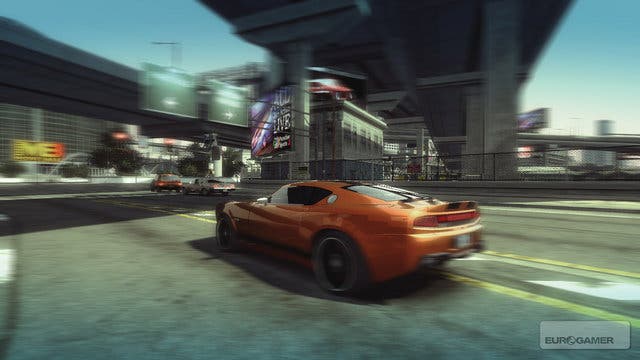
By way of helping hand, the instantly dislikeable American DJ, Atomika, chimes in with tips as you pass by events and items of interest. There's no specific thing you have to do - you can keep driving around the entire map marvelling at the new game engine, if you want to - but this is the game's first error. There's an initial sense of confused bewilderment as you wonder where you're supposed to go and what you're supposed to do. Soon enough you drive towards a set of traffic lights, and DJ Atomika will suggest you might want to enter one of the events by holding down the left trigger and then the right to get started.
Depending on which direction you head off in, you'll have the choice of entering straightforward first-past-the-post Races [watch Kristan do this on Eurogamer TV], takedown-based Road Rage [and this] challenges, as well as the all-new Marked Man and Stunt Run events (more of which later). The main tweak you'll immediately notice in the races is that Criterion has completely abandoned the concept of tracks, and gone with an open-ended approach reminiscent of Rockstar's Midnight Club. Instead of being shepherded along by invisible barriers and arrows, you're now free to take whichever route you want to. The aim is simply to get from A to B before everyone else - how you get there is entirely up to you.
In theory, placing such trust and freedom in the hands of the player is liberating, and far more befitting a modern approach to racing gaming. Your knowledge of the multi-layered city is something you can build upon as you go along, taking advantage of sneaky shortcuts and back alleys which may give you a crucial edge - especially in the more built up parts of Paradise City. In practice, the dense intricacies of this utterly beautiful city can be completely baffling to the newcomer as you find yourself repeatedly swept off-course by snaking, interconnecting, multi-layered roads. Again, just like Midnight Club, the only solution to such failure is repeat play, and the organic process of mapping out the city in your own head.
Restarting the debate
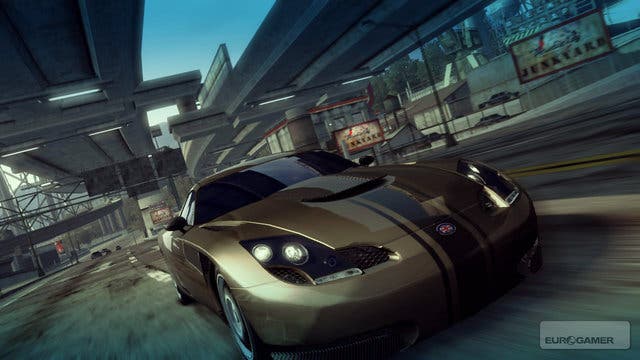
Exploration takes time, and not least because of the decision to not allow you to restart events. Whereas comparative openworld city-based games like various Need For Speed titles allow you to routinely skip to the menu to select whichever unlocked events are available, Criterion demands that players either take the time to trek back to the start line (maybe five miles away), or plump for another event. As annoying as that sounds, it's genuinely not as irritating as you assume. The dense, interesting design of the city distracts you, and, rather than get bogged down trying to crack a single event over and over (often a frustrating thing to put yourself through anyway), you'll shrug and get stuck into something else - maybe spying an opportunity to smash into more billboards and private property fences, attempt a new super-jump you hadn't seen before, try out your Power Parking skills between parked cars, or just get cracking on another event. There are always plenty to choose from.



